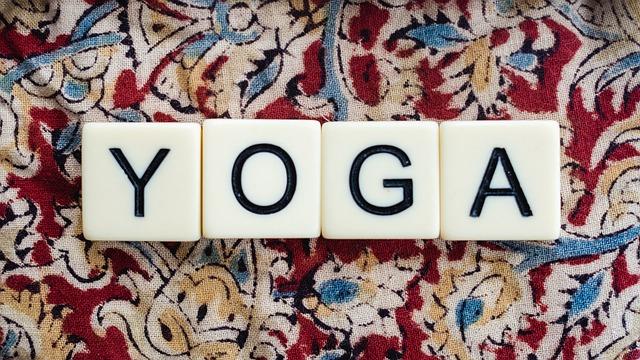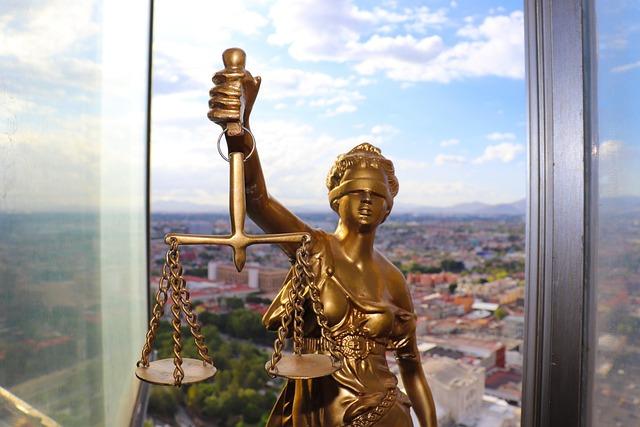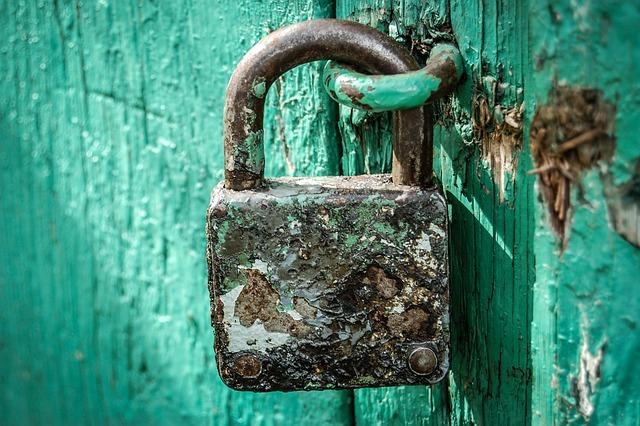In a recent outcry for justice, Amnesty International has called on the authorities in Lesotho to urgently investigate allegations of torture and inhumane treatment of detainees at the Maseru Correctional Institution.this alarming report raises serious concerns about the human rights conditions within the country’s penal system, highlighting not only the urgent need for accountability but also the broader implications for civil liberties in Lesotho. As voices for reform grow louder, the plight of those incarcerated under such dire circumstances demands immediate attention, underscoring the fundamental principle that all individuals, regardless of their legal status, are entitled to humane treatment and dignity. This article delves into the specifics of the allegations, the response from authorities, and the overarching meaning of these developments for human rights advocacy in the region.
Call for Immediate Action on Torture Allegations in Lesotho’s Maseru Correctional Institution

The recent allegations of torture within the Maseru correctional institution have ignited a fire under human rights advocates, calling for urgent and thorough investigations by the Lesotho authorities. Reports detailing the inhumane treatment of detaineesﻗincluding physical beatings,psychological abuse,and inadequate medical careﻗhave emerged,painting a troubling picture of the state of human rights in Lesotho. Victims of these abuses deserve not only to have their voices heard but also to see those responsible held accountable. It is imperative that the government acts decisively to address these allegations and implement reforms to safeguard the rights of all detainees.
Key actions that must be taken include:
- Immediate investigation: An independent body should be established to investigate claims of torture and mistreatment.
- Accountability measures: Those found guilty of perpetrating violence or abuse should face legal repercussions to deter future violations.
- Reforms in detention practices: The government should review and reform current policies to align with international human rights standards.
- Protection for whistleblowers: Ensuring the safety of individuals who report abuses is crucial to fostering a culture of accountability.
amnesty International’s Findings: A Deep Dive into Human Rights Violations

Recent findings from Amnesty International highlight alarming allegations of human rights violations at the Maseru Correctional Institution in Lesotho. The institution underscores serious concerns regarding torture and inhumane treatment of detainees, with numerous testimonies revealing a pattern of abuse by prison officials. Survivors have reported a range of abusive practices, including:
- Physical violence: Beatings and other forms of physical abuse are rampant.
- Psychological torture: Detainees facing threats and harassment undermine their mental well-being.
- Neglect of medical care: Ill individuals are often denied necessary medical attention.
Amnesty Internationalﻗs report calls for immediate action from the Lesotho government to investigate these allegations thoroughly. In a press release, the organization emphasized the need for an independent review to ensure accountability and justice for victims. Moreover, they recommend implementing thorough reforms to prevent further abuse, including:
- Training for staff: Focused on human rights standards and detainee treatment.
- Establishment of oversight mechanisms: To monitor conditions and ensure compliance with human rights obligations.
- Access to independent monitors: Allowing non-governmental organizations to assess detention conditions.
| Allegation Type | Reported Incidents |
|---|---|
| Physical Abuse | 75% of detainees |
| Psycho-social Abuse | 60% of detainees |
| Medical Neglect | 50% of detainees |
The Psychological and Physical Impact of Torture on Detainees

The consequences of torture extend far beyond immediate physical injuries; they often lead to long-term psychological damage that can affect individuals for the rest of their lives. Survivors of torture may experience debilitating conditions such as post-traumatic stress disorder (PTSD), anxiety, and depression. The following psychological effects are commonly observed among those subjected to such inhumane treatment:
- Flashbacks: Recurring memories that transport victims back to the traumatic event.
- Emotional Numbness: A disconnection from feelings, leading to difficulties in interpersonal relationships.
- Hyper-vigilance: An ongoing state of heightened alertness, which can disrupt normal functioning.
Alongside these psychological ramifications, the physical toll of torture is frequently enough equally severe. Many detainees endure lasting injuries that can hinder their ability to lead a healthy life post-release.The following table illustrates the potential physical consequences faced by survivors:
| physical Effects | Description |
|---|---|
| Chronic Pain | Continuous discomfort that may arise from injuries inflicted during torture. |
| Muscle Weakness | Weakened physical state resulting from trauma and inadequate nutritional support. |
| Organ Damage | Long-term impairment of vital organs due to physical abuse. |
Legal Framework and Accountability: addressing Gaps in Lesotho’s Justice System

The ongoing reports of torture and inhumane treatment of detainees at the Maseru correctional institution signal a critical breakdown in Lesothoﻗs justice system. The prevailing legal framework, while ostensibly aligned with international human rights standards, harbors significant gaps in enforcement and accountability. This discord between law and practice raises pressing concerns regarding the protection of detainees’ rights.Lack of rigorous oversight and transparency in correctional facilities has resulted in an environment ripe for abuse, where perpetrators of human rights violations face little to no accountability. Furthermore, inadequate training and resources for law enforcement complicate the situation, often leaving detainees vulnerable and without recourse to justice.
To effectively address these challenges, comprehensive reforms are urgently needed. Establishing an independent oversight body that can investigate allegations of torture and maltreatment is crucial.such a body should be empowered to conduct regular inspections, foster public accountability, and implement training programs aimed at educating correctional staff about human rights principles. Additionally, strengthening legal provisions to protect whistleblowers and encouraging community involvement in monitoring efforts would create a more supportive environment for enforcing accountability. Only through these measures can Lesotho hope to rectify the systemic issues plaguing its justice system and foster an atmosphere of respect for human dignity.
Recommendations for Reform: Ensuring Detainee Rights and Protection Measures

To address the alarming situation of detainee rights within Lesotho’s correctional facilities, a robust reform strategy must be implemented.Establishing an independent oversight body to monitor the treatment of inmates and to investigate allegations of abuse can act as a deterrent against torture and mistreatment.Additionally, training programs for correctional staff focused on human rights can foster an environment that respects the dignity of all detainees. These measures are essential to cultivate a culture of accountability and transparency within the prison system.
Moreover,providing access to legal representation and psychosocial support for detainees is crucial in strengthening their rights and well-being. The government should also consider implementing regular medical check-ups for all inmates to routinely assess their physical and mental health conditions. This proactive approach can definitely help identify instances of abuse and ensure prompt intervention. The combination of these strategies will not only protect detainees but will also reaffirm Lesotho’s commitment to upholding fundamental human rights in the justice system.
The Role of Civil Society in Advocating for Change in lesotho’s Prisons

The plight of detainees in Lesotho’s correctional facilities has garnered increasing attention, particularly concerning allegations of torture and inhumane treatment. civil society organizations play a pivotal role in shedding light on these issues, advocating for the rights and dignity of those behind bars. Through grassroots campaigns, public awareness initiatives, and legal assistance, these groups work tirelessly to expose the harsh realities within prisons, pressing for accountability from authorities. Their efforts not only provide a voice for the voiceless but also foster a culture of transparency and justice within the system.
Moreover, the collaboration between civil society and international human rights organizations, such as Amnesty International, amplifies the call for reform.Their combined efforts can lead to significant change through various means:
- Monitoring and Reporting: Regular assessments of prison conditions to compile evidence of malpractice.
- Policy Advocacy: Engaging with government bodies to push for legislative changes aimed at improving rights and conditions.
- Public Campaigns: Raising awareness among citizens about the importance of prison reform and human rights.
The support from these organizations not only brings local issues to the global spotlight but also creates a network of solidarity that empowers detainees and their families. Addressing allegations of torture in institutions like the Maseru correctional facility requires a collective action framework harnessed by the passion and resilience of civil society.
Wrapping Up
the alarming reports of torture and mistreatment within the Maseru Correctional Institution not only highlight systemic abuses within Lesotho’s penal system but also underscore the urgent need for thorough investigations by authorities. Amnesty International’s call for accountability is a critical step toward safeguarding the rights of detainees and ensuring justice in the face of these serious allegations. As the international community watches closely,it remains imperative that Lesotho’s government uphold its obligations to protect human rights and foster an environment where dignity prevails. The path forward must prioritize transparency, justice, and a recommitment to the rule of law, essential pillars for the betterment of society and the overall integrity of its institutions.







